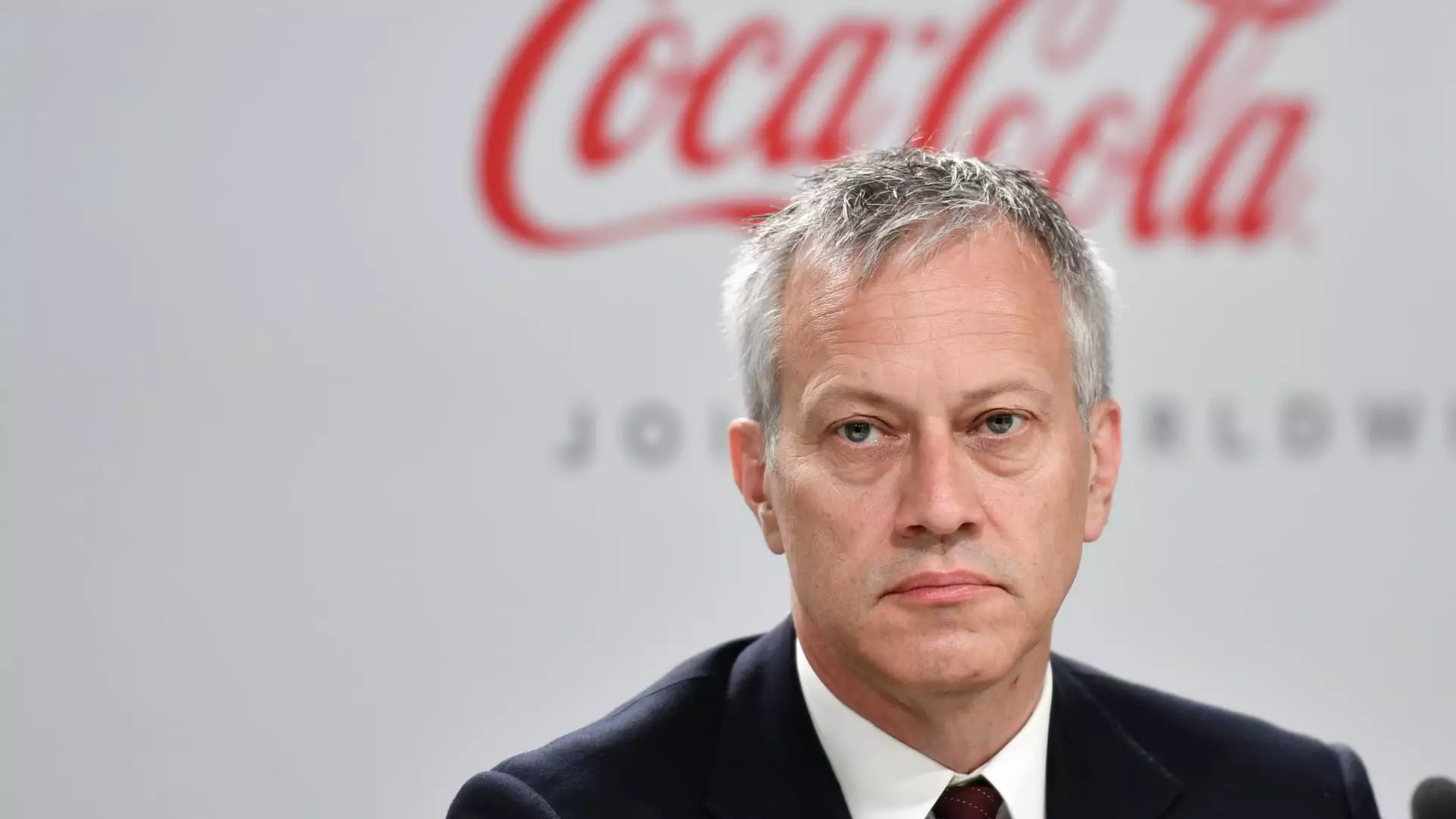The intricate relationship between Coca-Cola and McDonald’s is a prime example of a successful corporate partnership that has thrived over nearly seventy years. Recently, this alliance faced scrutiny as an E. coli outbreak was linked to McDonald’s Quarter Pounders. Despite this critical development, Coca-Cola CEO, James Quincey, expressed confidence that this outbreak will not significantly impact the beverage giant’s sales. This perspective sheds light on the robustness of their collaboration, suggesting that the intertwined fortunes of these two corporations may withstand external crises.
Coca-Cola’s ability to reassure stakeholders about the outbreak’s limited repercussions highlights a sophisticated understanding of consumer behavior and market dynamics. Quincey’s assertion not only reflects a contingency plan but also a strategic outlook that prepares shareholders for resilient growth despite external challenges. By analyzing the statements made during the third-quarter earnings call, one can gauge the confidence imbued in Coca-Cola’s positioning amidst adverse developments.
The Centers for Disease Control and Prevention (CDC) reported that the E. coli outbreak linked to McDonald’s burgers has led to 49 reported cases across ten states, including one fatality. Investigations indicate that the culprits might be raw onions and fresh beef patties, suggesting systemic vulnerabilities in food safety protocols. However, ensuring safe food handling practices can effectively mitigate such risks, as cooking meat to the requisite temperatures should eliminate harmful bacteria.
In response to the outbreak, McDonald’s took decisive actions by limiting the availability of Quarter Pounders in several states and proactively removing potentially hazardous ingredients, showing their commitment to consumer safety. This rapid response is crucial for maintaining public trust and mitigating any potential backlash that could arise from the outbreak. Moreover, the company’s assurance to consumers that they can still enjoy their staples presents a targeted approach to uphold brand integrity during a crisis.
The outbreak comes at a time when consumers are tightening their purses, posing additional challenges for both McDonald’s and Coca-Cola. Economic shifts have notably curtailed restaurant spending, compelling fast-food giants to offer promotions to attract customers. Given the current climate of cautious consumer spending, McDonald’s collaboration with Coca-Cola to design attractive combo meals becomes pivotal for retaining customer loyalty.
Interestingly, Coca-Cola has been active in supporting marketing efforts for these meals, emphasizing the mutual benefits that underscore their partnership. As consumers seek value, the performance of combo meals becomes critical in maintaining sales momentum for both companies. This cyclical dependency reinforces the idea that turbulent market conditions necessitate adaptive strategies, where each corporation can leverage its strengths for mutual advantage.
Despite the headwinds posed by sluggish consumer spending, Coca-Cola demonstrated resilience in its third-quarter financial results, beating Wall Street expectations in terms of earnings and revenue. This scenario illustrates the impact of effective pricing strategies and indicates that consumer purchasing behavior can still be influenced by adequate value propositions. However, a 2% decline in stock prices on the morning following the report underscores the volatility and sensitivity of investors to potential risks, highlighting the precarious balancing act that both Coca-Cola and McDonald’s embark upon during challenging periods.
As these two corporate giants navigate through immediate crises and shifting consumer preferences, their ability to adapt and respond with agility is vital. The current E. coli episode serves as a reminder of the unpredictable nature of food safety and market dynamics, accentuating the responsibility that these companies have not only to their shareholders but also to the consumers who rely on their products.
Moving forward, Coca-Cola and McDonald’s must remain vigilant and responsive as they traverse the complexities posed by public health challenges and economic uncertainties. Their longstanding partnership may act as a source of strength as they work collaboratively towards recovery and sustaining customer loyalty. The path will require innovative marketing, unwavering commitment to safety standards, and a keen awareness of consumer sentiments.
While the E. coli outbreak presents a significant challenge, the alignments within the Coca-Cola and McDonald’s partnership will likely guide them through these turbulent waters, shaping their strategies to emerge not just intact, but potentially stronger. As they adapt to an evolving landscape, the corporate narrative of resilience and responsiveness becomes imperative in maintaining their storied legacy in the global food and beverage industry.

